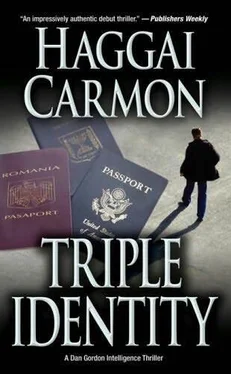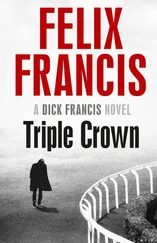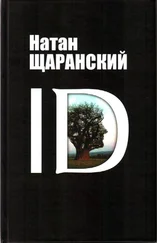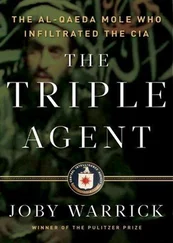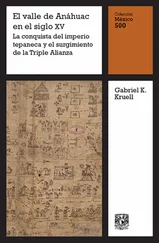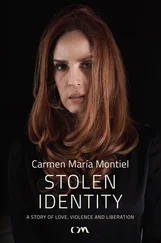Haggai Carmon - Triple Identity
Здесь есть возможность читать онлайн «Haggai Carmon - Triple Identity» весь текст электронной книги совершенно бесплатно (целиком полную версию без сокращений). В некоторых случаях можно слушать аудио, скачать через торрент в формате fb2 и присутствует краткое содержание. Жанр: Триллер, на английском языке. Описание произведения, (предисловие) а так же отзывы посетителей доступны на портале библиотеки ЛибКат.
- Название:Triple Identity
- Автор:
- Жанр:
- Год:неизвестен
- ISBN:нет данных
- Рейтинг книги:4 / 5. Голосов: 1
-
Избранное:Добавить в избранное
- Отзывы:
-
Ваша оценка:
- 80
- 1
- 2
- 3
- 4
- 5
Triple Identity: краткое содержание, описание и аннотация
Предлагаем к чтению аннотацию, описание, краткое содержание или предисловие (зависит от того, что написал сам автор книги «Triple Identity»). Если вы не нашли необходимую информацию о книге — напишите в комментариях, мы постараемся отыскать её.
Triple Identity — читать онлайн бесплатно полную книгу (весь текст) целиком
Ниже представлен текст книги, разбитый по страницам. Система сохранения места последней прочитанной страницы, позволяет с удобством читать онлайн бесплатно книгу «Triple Identity», без необходимости каждый раз заново искать на чём Вы остановились. Поставьте закладку, и сможете в любой момент перейти на страницу, на которой закончили чтение.
Интервал:
Закладка:
I smelled a rat, but I didn't know where it was buried. Not yet.
I put the file aside, leaned back, and closed my eyes, shutting out the intense light in my office. If Popescu and DeLouise were the same person, he had been in Israel of all places! At the beginning of my career at the Justice Department I'd worked mostly on Israeli legal matters, but the scope of my work had gradually broadened to include international asset-recovery cases, some with an Israeli flavor. Eventually the asset-recovery cases I'd received had no known Israeli connection. This case was the first I'd seen to connect what seemed to be a non-Israeli matter with Israel, although the connection was hair thin.
I called my friend Benny's home number in Israel.
“Shalom,” said a man's voice.
“Hi, Benny,” I said, and went on without waiting for a response. “It's Dan.”
“Hold on,” said the man on the other end, “It's not Benny, I'll get him for you.” I heard him shouting, “Dad, it's for you.”
“Dad”? A grown man was calling Ben “Dad”? When I last saw Lior, Ben's son, he was ten years old. But that, I realized, had been ten years ago.
“Erev tov, good evening,” said the voice on the other end.
“Hi, Benny,” I answered. “It's Dan Gordon. How are you?”
“Still pulling,” he said.
“And your family?”
“Being schlepped.”
“And how's Batya?” I'd always liked his wife.
“Well, on one of these days I'm going to catch pneumonia because of her.”
“Why?”
“Because each time she sings in the shower, I have to go out to the balcony so that the neighbors won't think I'm beating her up,” he said, and I realized that he hadn't changed.
“I need help.”
“I'm here,” he said.
“Well,” I said, sounding a bit apologetic, “this time it's ancient history. Could you please see what you have on Bruno Popescu, born in Romania, a July 15 birth date? He could be a person I'm looking for, a man named Raymond DeLouise. I suspect he was in Israel in November 1957.”
“What did he do?” Benny asked curiously. “Steal something?”
“Yeah,” I said, “ninety million dollars.”
“Is that all? Fax me what you have and I'll see what I can do.”
“Thanks, Benny,” I said, “and if this works out, I'll owe you lunch.”
Benny mumbled his thanks. He knew he would not be making a sacrifice. As an observant Jew, he ate only kosher food, and there are few restaurants in Tel Aviv that are both kosher and good.
“Give me a little time,” said Benny. “I'll call you right away if I find something.”
Benjamin Friedman had been the odd man out in the Mossad's cadet course. The other eleven of us had been secular Israelis, like a substantial majority of the country's population. Benny was the son of Holocaust survivors who had owned a grocery store in central Tel Aviv. I used to stop by their store with Benny during our training years. His mother worked behind a tall display refrigerator that doubled as a counter. She wore the typical clothes of an Orthodox woman: head covering and long sleeves even in the height of summer.
I noticed that Benny was embarrassed each time we stopped by his family's store. His mother would approach him, asking, “Have you eaten yet? Come have a piece of cake, you look too pale.” It hadn't mattered that Ben was a grown man of robust appearance. To his mother, he was still a child in need of her care.
The store was cramped and smelled of the matjes herring and pickles in brine kept in open wooden casks. The smell always made me hungry. But I'd always restrained my urge to pluck a pickle while her own son was sidestepping her attempts to feed him. Benny never made an issue of his self-imposed dietary restrictions and unwillingness to work on Saturdays and other Jewish holidays. He had come to the cadet course from AMAN, the military intelligence division, where the words were not an oxymoron. AMAN was by far the largest intelligence agency in Israel. It was responsible for gathering all military intelligence concerning the surrounding Arab states and for submitting the periodic intelligence overview to the prime minister. All Benny had told us was that he'd served as a captain in what is now known as 8200, AMAN 's secret communication and computer unit. Basically it did what the U.S. National Security Agency (NSA) did: intercept radio, telephone, fax, computer, and other communications; decipher their content; and draw intelligence conclusions.
I could still hear Meir Amit, then-head of the Mossad, lecturing us on the opening day of our course. “An intelligence service is expected to gather information concerning the enemy's intentions and capabilities – period,” Amit said. “Governments that extend the scope of these duties are likely to lose control, because secret organizations have dynamics of their own.”
Years later I grew to appreciate how right he was. Amit had been in the middle of his term as head of the Mossad, but his earlier bitter struggle with Isser Harel, his predecessor who mixed internal politics with his official capacity, must have given him that wisdom.
Two days later Benny called back.
“I think I have what you want,” he told me, without much ado. “This person has a very interesting history. Write this down. Israeli records show that a Bruno Popescu left Israel with a Romanian passport on December 13, 1957. But we couldn't find a date of entry to Israel. The records from this period were handwritten and there is no information about what country's passport he used. Other records may have answered this question. A person named Bruno Popescu, with the same vital statistics as your Raymond DeLouise, entered Israel sometime between May and June 1948. These were the very first days of the state of Israel and there were no real records, as you very well know,” he said, as if I could forget my background. “We rely on the immigration records of the Jewish Agency, which acted as an interim government from just before the British left to the time the state of Israel was created. Their records show that Popescu came by ship to Haifa and was sent to Shaar Ha'Aliya, a new immigrants’ camp nearby. They received new immigrant ID cards. After about two years the family changed their name to an Israeli-sounding one, like most immigrants. Bruno received an Israeli ID card bearing his new name, Dov Peled.” Benny paused. “Do you know what this means?”
“Yes,” I said anxiously. “Go on, it's getting interesting. But how can you be sure that Peled-Popescu is indeed the same person as DeLouise?”
“I'm certain,” said Benny. “In 1976 he entered Israel using his U.S. passport. Our computer matched his date and place of birth and other vital statistics with Dov Peled's. We compared your faxed photo with Peled's. DeLouise looks older, but it's the same guy.”
“Fascinating,” I said. “That explains why we couldn't find him. He simply has three legal identities: as a U.S. citizen named Raymond DeLouise, as a Romanian citizen named Bruno Popescu, and as an Israeli citizen named Dov Peled. Triple identity,” I repeated in disbelief.
“But wait,” he said, “it gets better. Why don't you come over to Israel and I'll show you something even more intriguing.”
After finishing up with Benny, I called David Stone's office. Stone himself answered. It was not unusual for him to take his own calls. He was never formal.
“David,” I said, “I need to go to Israel.”
“Family?” he asked.
“No, this time it's pure business.”
“What do you mean?”
“I think I found DeLouise's old tracks in Israel. I need to go deeper. I don't know much yet. I have footprints leading to Israel, so I hope to find out more while I'm there.”
“Okay,” said David briefly, “you know the rules. The U.S. Embassy in Israel and the state of Israel must approve your visit.”
Читать дальшеИнтервал:
Закладка:
Похожие книги на «Triple Identity»
Представляем Вашему вниманию похожие книги на «Triple Identity» списком для выбора. Мы отобрали схожую по названию и смыслу литературу в надежде предоставить читателям больше вариантов отыскать новые, интересные, ещё непрочитанные произведения.
Обсуждение, отзывы о книге «Triple Identity» и просто собственные мнения читателей. Оставьте ваши комментарии, напишите, что Вы думаете о произведении, его смысле или главных героях. Укажите что конкретно понравилось, а что нет, и почему Вы так считаете.
